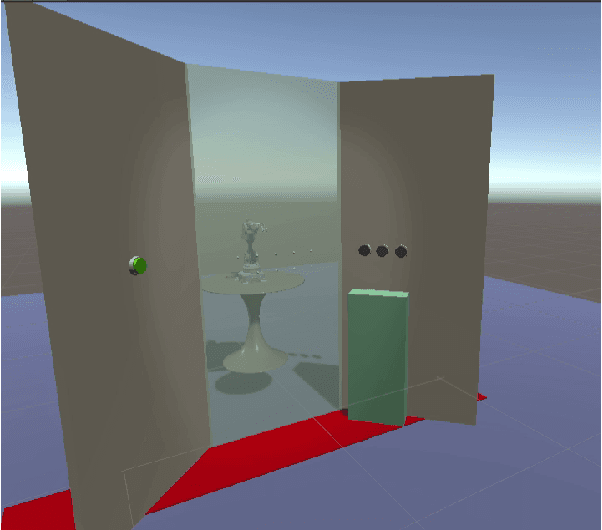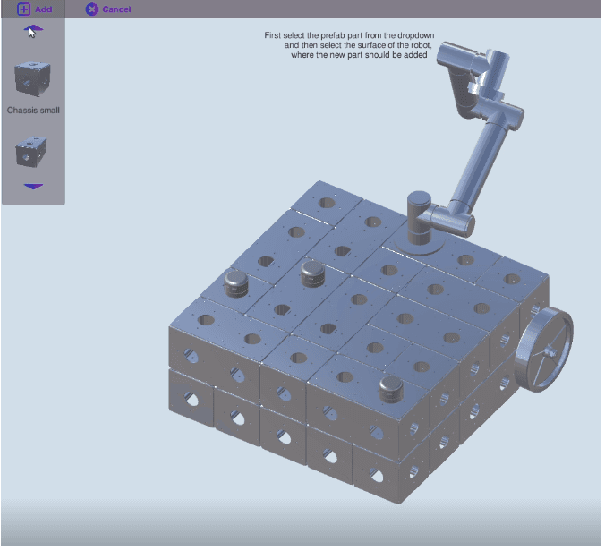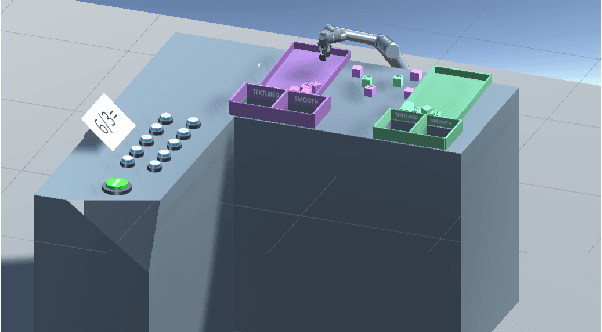Florian Michahelles
Designing Intent: A Multimodal Framework for Human-Robot Cooperation in Industrial Workspaces
Jun 18, 2025Abstract:As robots enter collaborative workspaces, ensuring mutual understanding between human workers and robotic systems becomes a prerequisite for trust, safety, and efficiency. In this position paper, we draw on the cooperation scenario of the AIMotive project in which a human and a cobot jointly perform assembly tasks to argue for a structured approach to intent communication. Building on the Situation Awareness-based Agent Transparency (SAT) framework and the notion of task abstraction levels, we propose a multidimensional design space that maps intent content (SAT1, SAT3), planning horizon (operational to strategic), and modality (visual, auditory, haptic). We illustrate how this space can guide the design of multimodal communication strategies tailored to dynamic collaborative work contexts. With this paper, we lay the conceptual foundation for a future design toolkit aimed at supporting transparent human-robot interaction in the workplace. We highlight key open questions and design challenges, and propose a shared agenda for multimodal, adaptive, and trustworthy robotic collaboration in hybrid work environments.
* 9 pages
Exploring Human-robot Interaction by Simulating Robots
Sep 20, 2022


Abstract:As collaborative robots enter industrial shop floors, logistics, and manufacturing, rapid and flexible evaluation of human-machine interaction has become more important. The availability of consumer headsets for virtual and augmented realities has lowered the barrier of entry for virtual environments. In this paper, we explore the different aspects of using such environments for simulating robots in user studies and present the first findings from our own research work. Finally, we recommend directions for applying and using simulation in human-robot interaction.
 Add to Chrome
Add to Chrome Add to Firefox
Add to Firefox Add to Edge
Add to Edge